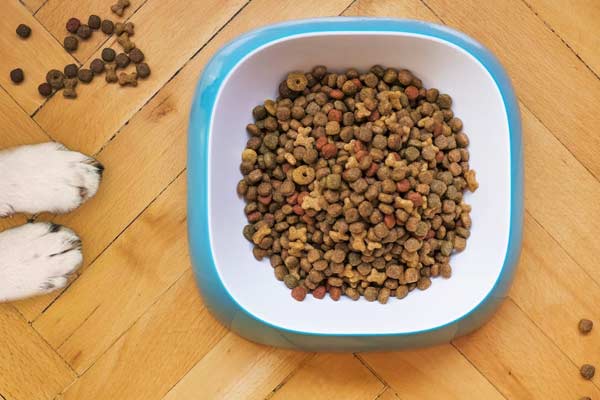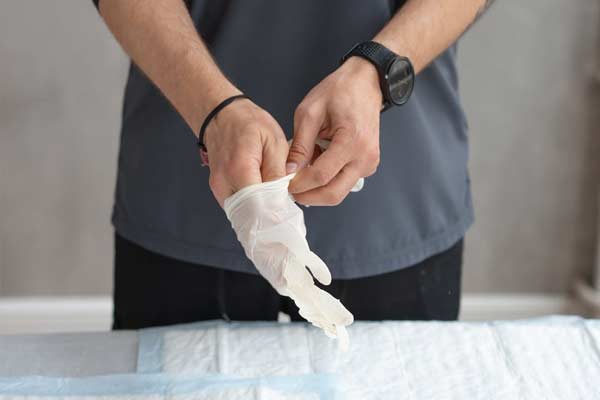Whippet Lifespan: Unlock the Secrets of Whippet Longevity
How Long is the Whippet Lifespan?
The Whippet is a popular choice for many dog owners. These intelligent, active, and good-natured pups can bring great joy to their family. But one question many people have before adopting a Whippet pup is how long they will live.
In this article, we will explore the average lifespan of Whippet dogs and provide tips on increasing your pup’s longevity.
We will also explore why routine vet visits should be part of your pet care plan and what happens during those visits.
So read on to find out everything there is to know about making sure your four-legged friend lives a long and happy life!
The Average Lifespan of a Whippet Dog
On average, the lifespan of a healthy Whippet is between 12 and 15 years. Of course, some exceptions exist; some Whippets can live longer or shorter than this range depending on individual health factors, living environment, and lifestyle.
Whippet Common Health Issues and How to Avoid Them
Dental Disease
Like humans, whippets can suffer from dental disease, which can cause pain and discomfort for your dog and lead to more severe health problems.
Brushing your whippet teeth regularly with a toothbrush made specifically for dogs is essential. Remember dental chews or treats designed to help remove plaque buildup and freshen breath.
Skin Irritations
Whippets can be prone to skin irritations due to their short coats, so they must watch for discomfort or itching. Regular brushing will help remove dirt and debris that may be irritating or uncomfortable for your dog.
Frequent baths will help keep his coat clean and free of dander or other allergens that could trigger skin irritation.
Suppose you notice any irritation, such as excessive scratching or dryness. In that case, it’s best to consult your veterinarian immediately so they can diagnose the problem and provide treatment if necessary.
Allergies
Allergies can be a common issue in whippets. It is essential to watch for allergy signs such as sneezing, coughing, runny eyes or nose, skin rash or hives, vomiting, or diarrhea after eating certain foods or coming into contact with certain substances like pollen or dust mites.
If you feel your dog has an allergy, it is best to visit the vet to diagnose the problem and prescribe medication if needed.
It is also essential to avoid exposing your dog unnecessarily to whatever might be causing the allergy for him to stay healthy and comfortable.

Whippet Proper Nutrition for a Long, Healthy Life
Whippets need a balanced diet with all the essential minerals and vitamins that keep them healthy.
A good quality dry or wet dog food is an ideal meal for your pup to give them the nutritional needs of canine athletes such as whippets.
Look at the label on any commercial dog food and check if It contains protein, fat, carbohydrates, vitamins, minerals, trace minerals, and fatty acids -necessary for a whippet’s health.
Look for foods with real meat listed as the first ingredient (chicken or beef). Avoid anything with fillers like corn or wheat, which can cause allergies in some dogs.
Nutritional Supplements
There are supplements you can give them to help ensure they get all the nutrients needed for optimal health.
For example, fish oil helps keep joints healthy; glucosamine can help reduce inflammation; probiotics help maintain a healthy digestive system; and omega-3 fatty acids can help support skin and coat health.
Make sure these supplements are specifically for dogs since human supplements may not be safe for pets!
Also, talk to your vet before giving any supplement, so you know how much is appropriate for your pet’s size and weight.
Feeding Schedule
Whippets need two meals daily consisting of 1 to 1.5 cups per meal, depending on their age and activity level.
Four-month Puppies should get three meals per day, while older puppies may only need two meals per day until they reach adulthood at around 10-12 months old.
Be sure not to overfeed and adjust feeding amounts according to your pup’s activity level – more active breeds will require more food, while less active ones will need fewer calories each day.
Factors That Impact Lifespan
Several factors can impact the lifespan of any dog, including the Whippet. Genetics plays a vital role in determining how long your pup will live; if you have adopted from a breeder who has made sure to screen for genetic diseases and health problems correctly, then your dog should be able to enjoy a good quality life for as long as possible.
Other impacts on your pup’s lifespan include diet, exercise levels, hygiene, environment (indoor versus outdoor), and access to veterinary care and preventative treatments such as vaccinations and flea/tick medications.
Common Causes of Death in Whippets
Cardiovascular Disease
Cardiovascular disease is considered a leading cause of death in Whippets. This condition occurs when the blood flow decreases in the vascular system.
Symptoms may include difficulty breathing, coughing, fatigue, fainting, and loss of appetite. If you see any of these signs your Whippet has, it’s essential to take them to the vet immediately for diagnosis and treatment.
Cancer
Cancer is another common cause of death in Whippets. Unfortunately, this is an unpredictable illness with various symptoms depending on what type it is and where. Common symptoms include weight loss, lethargy, lameness, or swelling around a particular body area.
Suppose you notice changes in your dog’s behavior or appearance, it’s essential to get them checked out by your veterinarian for early diagnosis and treatment if necessary.
Gastrointestinal Disease
Gastrointestinal disease can also be dangerous for Whippets if left untreated. The common symptoms include vomiting, diarrhea, and loss of appetite, which can result in dehydration or malnourishment if not addressed quickly enough.
You must visit the vet to check them out as soon as possible so they can diagnose and treat the problem appropriately before it becomes more serious.
Tips To Increase Your Pup’s Lifespan
If you want to give your Whippet the best chance at living as long as possible, there are a few things to do to increase its lifespan.
Start by ensuring that your pup gets plenty of exercise daily; 30 minutes per day is enough but may need to be adjusted based on your pup’s age or energy level.
A balanced diet contains plenty of high-quality proteins and vitamins; speak with your vet about the best food for your Whippet.

Why Routine Vet Visits Should Be Part of Your Whippet Care Plan
Regular vet visits help ensure your Whippet is healthy and up-to-date on all vaccinations.
During the visit, your vet will perform a physical exam to check for any signs of illness or injury. It is also an ideal time to discuss any health concerns you may have about your pet.
The vet may recommend routine tests such as blood work or x-rays to diagnose any potential issues before they become serious.
This early detection can help save time and money by preventing costly medical treatments or procedures.
What Happens During a Regular Vet Visit?
During the visit, the vet will check your dog’s weight and temperature and examine the eyes, ears, mouth, heart, lungs, and abdomen for signs of infection or inflammation. Also, he may check for lumps or bumps that could indicate skin cancer or other conditions.
By completing a physical exam, the doctor will likely recommend vaccinations and flea/tick prevention medications if needed.
Finally, the vet will answer any questions regarding diet and exercise recommendations for your Whippet and offer advice on keeping them safe from harm outdoors (such as avoiding areas known for wild animal activity).
Conclusion
Whippets are beloved pets who make excellent companions thanks to their intelligence and loving nature—and now you know exactly how long they usually live!
On average, these small dogs have medium lifespans ranging from 12-15 years old, but this number may vary based on genetics and lifestyle factors such as diet and exercise.
By ensuring that your Whippet enjoys healthy meals every day, regular exercise sessions, and visits to their vet clinic, you can help ensure that yours will stick around for years to come!






